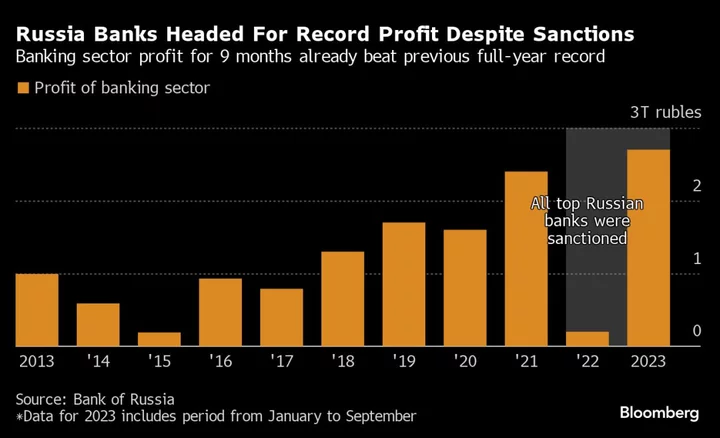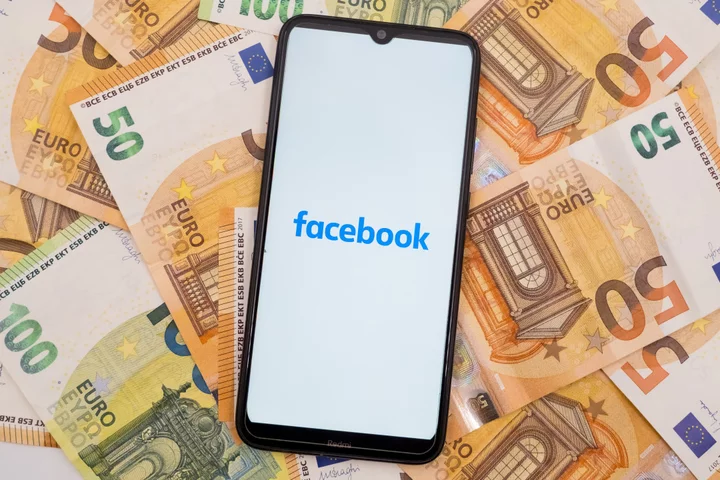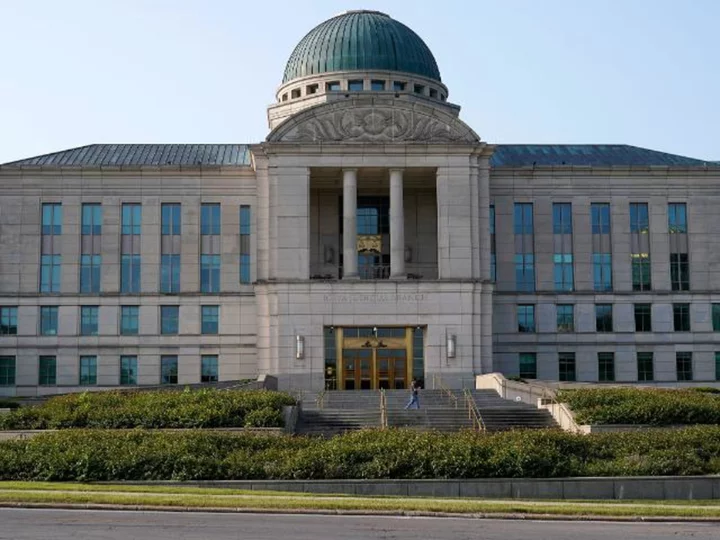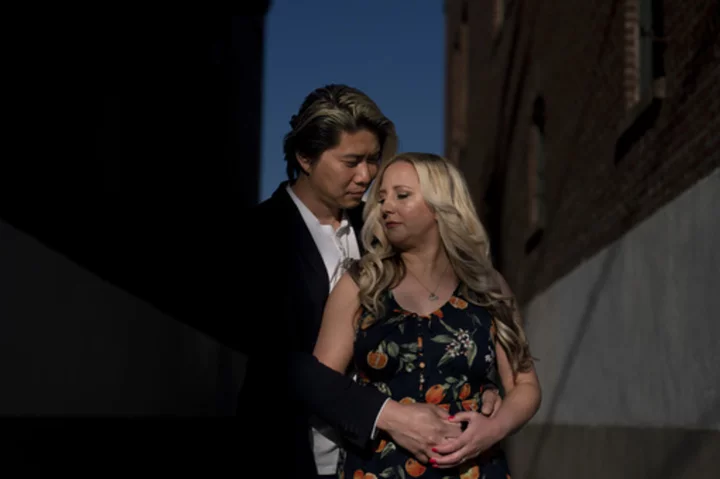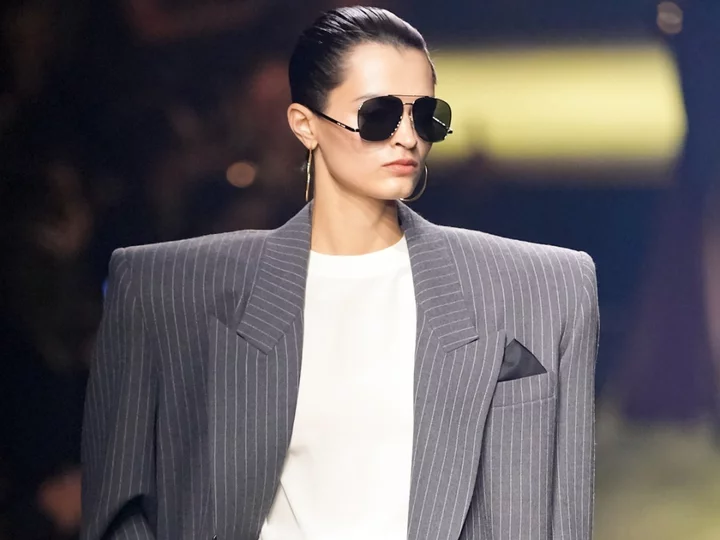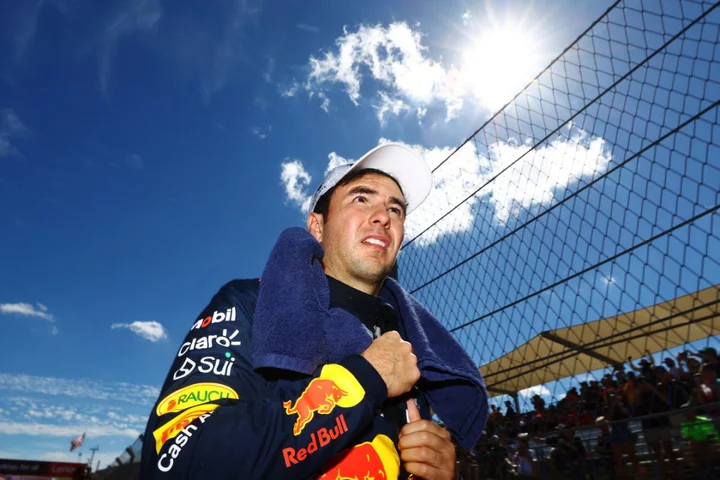Key sectors of Russia’s economy are adapting and in some cases completely rebounding from unprecedented international sanctions imposed over the war in Ukraine.
Banks, car manufacturers and airlines have found ways to cope and, in the case of lenders, achieve record profits this year despite US and European restrictions aimed at tanking the economy in retaliation for the war. Many of the businesses that recovered from last year’s shock did so because Russia’s overall economy grew and consumer demand surged, boosted by ample government spending.
The rebound illustrates the limits of the sanctions that US President Joe Biden said were designed to cut Russia’s economy in half and turn the ruble into “rubble” as punishment for the February 2022 invasion of Ukraine. President Vladimir Putin sought to boost ties with countries such as China and India as the European Union slashed trade links with Russia, including imports of oil and gas, in repeated rounds of sanctions.
The ruble hit record lows immediately after the war began, but soon rebounded. The government last month reimposed some currency controls after the ruble slumped again to 100 per dollar, prompting a turnaround that’s made it the best performer among emerging markets in the past month.
To be sure, though Russia has escaped economic collapse so far, the government is draining its resources to maintain state spending while there’s been an exodus of foreign investors, and domestic businesses find it increasingly difficult to keep up with technological change amid international isolation.
Russia’s banking sector offers one of the starkest examples of where the economy has overcome the hit from sanctions. The largest Russian bank, state-owned Sberbank PJSC, which alongside all major players in the country’s market was designated by the US and the EU and cut off from the SWIFT international payments system, is poised to reap a record ruble profit this year.
“Most likely, this year will indeed be the most successful in history for us,” said Chief Executive Officer Herman Gref, who’s sanctioned by the US, the EU and the UK.
Sberbank isn’t unique in that. The banking sector’s total profit for the first nine months of the year has already exceeded the previous annual record from before the war, in 2021. After falling to almost nothing in the first year of the invasion, bank profits may reach more than 3 trillion rubles ($33 billion) in 2023, said Valery Piven, managing director of the Russian rating agency ACRA.
That’s three times higher than the central bank initially expected this year, driven by a credit boom, the weakening ruble and low provisions.
According to ACRA, next year also is expected to be “quite successful” for lenders.
Economic Rebound
After two subsequent quarters of likely gains, Russia’s economy has almost returned to levels of growth seen before the war, all but reversing the blow from sanctions.
Economists surveyed by Bloomberg estimate annual growth accelerated to more than 5% in the third quarter. That data is set to be released by the Federal Statistics Service on Wednesday.
The fiscal stimulus that has helped fuel the turnaround is set to continue, enabled in part by Russia’s ability to redirect oil supplies to other countries and to sell crude at prices above a $60 cap imposed by the Group of Seven nations and the EU.
Read more: Russia’s Fiscal Gap Shrinks Again Despite Growing Cost of War
Energy sales have preserved a crucial revenue stream for the government, leaving the budget in better shape than officials forecast despite the surging war costs. Government spending will continue to stimulate the economy, according to a Finance Ministry document laying out the main budget policies for 2024-2026, and has “made it possible not only to stabilize the situation, but also to successfully and quickly adapt to new conditions.”
What Bloomberg Economics Says...
Russia’s economy likely reached pre-war levels at the start of the fourth quarter in 2023, defying early expectations.
The drivers of this recovery were favorable energy prices, which provide Russia with a stream of oil and gas revenue, COVID-scale fiscal impulse that the government delivered through a boost in military spending, and loose credit conditions which saw the expansion of retail and corporate loan portfolios by around 20% year-on-year.
- Alex Isakov, Bloomberg Economics
Challenges still lie ahead. Inflation has accelerated well above the central bank’s 4% target as a result of supply constraints, public spending, credit growth and tight labor markets exacerbated by the flow of people into the army and defense industries.
“After a peak comes a trough,” said Alex Isakov of Bloomberg Economics. With the Bank of Russia’s benchmark rate now at 15%, “expect a rapid cooling of credit in the coming quarters, which will reduce consumer demand and likely lead to a softer labor market,” he said.
Russia’s economy is likely to return to potential growth rates of around 1% of GDP, which “would be quite a good scenario in the current environment,” said Marcel Salikhov, president of the Institute for Energy and Finance in Moscow.
Filling the Gaps
Russia’s ability to find new sources for imports, or in some cases replace them altogether, was another factor in its recent recovery, said Stanislav Murashov, an economist at Raiffeisenbank in Moscow.
“Russian business is managing to apply very non-standard solutions,” he said. “We don’t yet see any severe deficit.”
The Russian car market bears this out. Seemingly dead after a mass exodus of Western brands, car sales have recovered to pre-war levels in just over a year.
While volumes recovered, the market structure has changed completely. China now accounts for around 80% of new car imports, and Chinese brands have captured more than half of the entire Russian car market in less than two years, according to analytic agency Autostat.
Read more: EU Takes Aim at Key Machine Exports to Russia in New Sanctions
Russia’s Avtovaz controls another slice of the market and reported a 59% increase in production in the first seven months of the year as well as the best sales volumes in a decade despite restrictions on components supplies to the country. The US added Avtovaz to its sanctions list in September.
Unplanned Achievements
After its carriers were cut off from many international air routes, Russian airlines turned to developing new domestic services in the world’s largest country by landmass. They have now reached a target of 50% of routes bypassing Moscow set by Putin in 2018, ahead of the original 2024 target, official data show.
The increase in domestic air travel, even as the authorities closed airports in tourist cities in southern Russia as part of the war on Ukraine, was largely due to government support, the Transport Ministry said in response to a Bloomberg request.
Despite the sanctions pressure, international air travel is “intensively developing,” with an almost 30% increase in passenger traffic in the first nine months of the year versus the same period a year ago. Russia has air links with 37 countries and 59 foreign carriers provide services, according to the ministry.
Still, the industry remains heavily dependent on Boeing and Airbus planes and has been forced to find alternative ways to maintain and service its fleet domestically or abroad. Aeroflot this year sent its first jet to Iran for service.
Even as some sectors have adapted to restrictions, life under sanctions comes with costs for Russia’s economy, said Olga Belenkaya, economist at Finam in Moscow.
“Russia has found workarounds for most sanctions, but still is suffering losses due to increased costs of logistics, limited access to equipment and technologies, and deteriorating quality of technological solutions,” she said.

